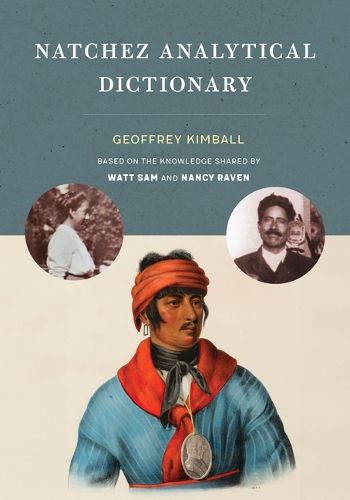Readings Newsletter
Become a Readings Member to make your shopping experience even easier.
Sign in or sign up for free!
You’re not far away from qualifying for FREE standard shipping within Australia
You’ve qualified for FREE standard shipping within Australia
The cart is loading…






In Natchez Analytical Dictionary Geoffrey Kimball offers the first comprehensive dictionary of the Natchez language, a now extinct Native American language originally spoken in the region surrounding Natchez, Mississippi, and finally in the Cherokee Nation of Oklahoma. Based primarily on the extensive fieldwork of world-renowned linguist Mary R. Haas, the dictionary also contains material collected earlier by linguists and anthropologists such as Victor Riste, John R. Swanton, Albert S. Gatschet, Ann Eliza Worcester Robertson, Albert Pike, and Albert S. Gallatin.
The Natchez language-whose lack of accurate available lexical material has perplexed modern linguists-has long been thought to be related to the Muskogean languages. Kimball's Natchez Analytical Dictionary fills this critical gap for comparative, historical linguistics.
$9.00 standard shipping within Australia
FREE standard shipping within Australia for orders over $100.00
Express & International shipping calculated at checkout
In Natchez Analytical Dictionary Geoffrey Kimball offers the first comprehensive dictionary of the Natchez language, a now extinct Native American language originally spoken in the region surrounding Natchez, Mississippi, and finally in the Cherokee Nation of Oklahoma. Based primarily on the extensive fieldwork of world-renowned linguist Mary R. Haas, the dictionary also contains material collected earlier by linguists and anthropologists such as Victor Riste, John R. Swanton, Albert S. Gatschet, Ann Eliza Worcester Robertson, Albert Pike, and Albert S. Gallatin.
The Natchez language-whose lack of accurate available lexical material has perplexed modern linguists-has long been thought to be related to the Muskogean languages. Kimball's Natchez Analytical Dictionary fills this critical gap for comparative, historical linguistics.